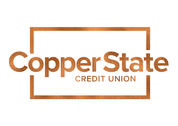Top 10 Questions to Ask Yourself Before You Refinance A House
Remember the Choose Your Own Adventure books? This quiz reminds us of those, but instead of an audience of pre-internet kids, this is geared towards homeowners deciding whether or not to refinance their mortgage loan.
Lots of homeowners have refinanced in the past 2 years, with many more on the brink due to higher-than-ever home values.
Here are some questions we like to ask (and you can ask yourself) to make your decision a little clearer.
1. Are you planning on staying in your home for at least 3-5 years after refinancing a house?
YES - Great! This will help you recoup the cost of a refinance. Move on to Question 2. 😊
NO - It's probably not the best idea for you to refinance your mortgage. Since it costs approximately $2,500-$3,000 to pay for a mortgage refinance, it’ll likely take more than a couple of years for you to break even on this financial move.
2. Based on your current interest rate, do you think you can lower your current rate by at least 1%?
(Check current rates)
YES - A mortgage refinance may be a great option for you! Refinancing has upfront costs, but a lower rate can save you big money in the long run.
NO - Hmmm, the rate is a big factor in the refinance decision! Without lowering your rate, you'll have to have some pretty solid alternate reasons to justify a refi. Move on to Question 3!
3. Do you want to shorten the length of your mortgage term when you refinance a house?
(For example: Switching from a 30 year mortgage to a 20 year term)
YES - Choosing to refinance a house may be a great option for you because shortening your term saves you on overall interest paid. You may want to check out questions 5-10 to see if any of those factors impact your decision.
NO - Let's keep talking. Move on to Question 4!
4. Have you reached 20% equity in your home and are looking to eliminate mortgage insurance?
(FHA loans require a refinance to Conventional in order to drop the mortgage insurance premium)
YES - Choosing to refinance a house may be a great option for you! Refinancing has upfront costs, but dropping that monthly mortgage insurance premium can save you big money in the long run. If you have a conventional loan with mortgage insurance, you may be able to just call your mortgage servicing company once you reach 20% equity and have them remove it, without doing a full refinance. Before you commit, check out questions 6-10 to see if any of those has an impact on your decision. 👍
NO - You may want to wait to refinance until you've reached that equity position where you have 20% 'money down' so that you can take advantage of dropping that insurance. But it's worth talking to a professional about it! Move on to Question 5.
5. Are you looking to refinance a house from an Adjustable Rate Mortgage (ARM) to a Fixed Rate Mortgage, or vice-versa?
YES - Depending on current rates and the details of your current situation, refinancing may or may not be a good option. Consider chatting with someone at Copper State Credit Union to talk through the details.
NO - Onward to Question 6!🏃
Liking the quiz but want a copy for later? Click below to download.👇
6. Do you currently have more than one mortgage-type lien on one property that you want to consolidate?
(For example: having a first mortgage and a home equity line of credit)
YES - Sometimes, this is a great reason to refinance a house! Other times, not so much. It can be helpful to talk through the details with someone regarding your specific situation! Contact a mortgage specialist and start the conversation. Or, simply start by reading the Empower Your Money tips below.
NO - Keepin' it simple! Go on to Question 7.
7. Do you want to lengthen the term of your mortgage in order to lower your monthly payment?
(For example: refinance from a 20 year mortgage into a 30 year mortgage)
YES - For some people, this is a good idea. But sometimes, it can do more harm than good. It really depends on whether extending the term and paying more interest overall is worth it, in your specific case. Read the Empower Your Money tips below and know that an experienced mortgage lending specialist can help you weigh the pros and cons.
NO - You'll probably save on total interest paid if you avoid lengthening the term. Move on to Question 8. 😘
8. Do you want to refinance a house to consolidate high-interest debt?
(A high interest rate is generally considered to be 15% APR or higher)
YES - If you have a plan in place to prevent the creation of new debt, and you have a realistic budget plan in place, a mortgage refi may be a good option for debt consolidation - but in some cases it can make things significantly worse. Our Cash Out Refi course goes into more detail on this topic. Read the Empower Your Money tips below and know that an experienced mortgage lending specialist can help you determine whether your specific situation is a good fit for a mortgage refi. Contact one here.
NO - Keep on going! Question 9 is next. 👇
9. Is your total monthly unsecured debt payments more than 42% of your total monthly income?
Exclude auto and mortgage loan payments when you're calculating monthly debt payments.
For example: if you make $10,000 per month [gross - before taxes/deductions], is your total monthly payments towards all unsecured debt less than $4,000?
YES - You'll have a harder time qualifying for a mortgage refinance loan with more than 42% of your yearly income in unsecured debt balances. This percentage is known as your Debt-to-Income ratio and you can learn more about using a refinance with a high DTI here. You may also benefit from a free credit counseling session with GreenPathTM which is included as a benefit of membership with Copper State Credit Union!
NO - Great! This means your debt-to-income ratio is in what lenders consider a healthy range. This doesn't necessarily mean you should refinance a house, but it's one good indicator. Take a look at all the information, and then decide. 👌
10. Is refinancing a house with cash out being used for a reason other than debt consolidation?
(For example: Home improvements, college tuition, medical bills)
YES - Our Cash Out Refi course goes into more detail on this topic. A mortgage refinance may be a good choice for your needs, but it's not always the right option! It really depends on your personal situation and overall financial picture.
NO - Ok! Hopefully the info above has given you some insight. Read the Empower Your Money Tips below, and happy refinancing 🙃 (if that's the route you choose!)
If you answered YES to any of the questions #6-#10, consider these Empower Your Money Tips.
Empower Your Money
1. Make a budget. No, really - refinancing a house and using your home’s equity is serious business, and you want to make sure you have a realistic spending plan in place to avoid going into unmanageable debt. Download our free budgeting template or take a look at our budget plan eBook.
2. If debt is an issue, cut up credit cards but leave the accounts open to avoid a hit to your credit score. Check out our credit score chart here.
3. Use caution when deciding to utilize your home’s equity. Get counsel from an expert and do your research before making a decision.
Conclusion
These ten questions are key to understanding your own motivation to refinance a house, as well as identify potential pitfalls you could come up against. We hope it helped and that you're one step closer to your financial goals!
Maybe you're in the Arizona housing market to buy, not refinance! We've got you. Check out our Are You Buying a House in Arizona? eBook to download it for free. And maybe you are a first-time homebuyer needing some tips or information regarding applying for a first-time homebuyer loan.
1 A one-time processing fee is charged as a part of your mortgage loan. APR=Annual Percentage Rate. Rates, terms and conditions are subject to change and may vary based on credit worthiness, qualifications and collateral conditions. All loans are subject to approval. For a $250,000 loan with a 20% down payment a 6.37% APR for a 30 year term, the monthly payment would be $1,231 (excluding property tax and insurance); for a $250,000 loan with a 20% down payment at 5.88% APR for a 15 year term, the monthly payment would be $1,660 (excluding property tax and insurance). 1% Origination Fee may apply.
The S.A.F.E. Act
The Secure and Fair Enforcement for Mortgage Licensing Act (S.A.F.E. Act) is a federal law designed to improve protection for consumers and reduce fraud in mortgage lending. Under this law, individual Mortgage Loan Originators (MLOs) must register in the Nationwide Mortgage Licensing System and Registry (NMLS).
All of Copper State Credit Union's mortgage loan originators are highly trained mortgage specialists who are registered with the Nationwide Mortgage Licensing System and Registry (NMLS). Locate your Mortgage Loan Originator's (MLOs) NMLS "ID," or contact us at 623.580.6000 with any questions.
This article is intended to be a general resource only and is not intended to be nor does it constitute legal advice. Any recommendations are based on opinion only. Rates, terms and conditions are subject to change and may vary based on creditworthiness, qualifications, and collateral conditions. All loans subject to approval.



